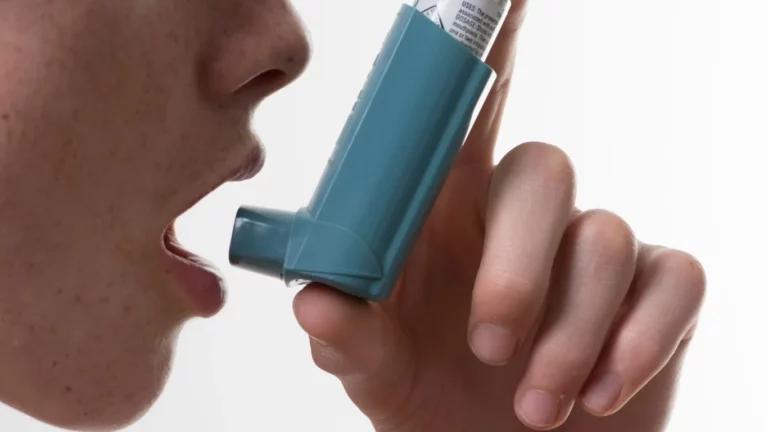Morning Acid Reflux Relief Hacks That Actually Work Fast
If you’ve ever woken up with that awful burning feeling creeping up your chest or that sour taste in your mouth, you know morning acid reflux relief isn’t just a nice-to-have — it’s a must. Trust me, working as a Medical Assistant in a busy Gastroenterology clinic, I’ve seen how disruptive it can be to start the day already battling your stomach. It’s not just uncomfortable — it’s draining. And for a lot of people, it’s not just once in a while. It’s every. single. morning. Let’s get into what’s really going on, and more importantly, what you can do about it — without turning your life upside down.
Why Does Morning Acid Reflux Even Happen?

First off, you’re not alone. One of the most common complaints patients used to bring to the GI clinic was exactly this: “Why do I wake up feeling like I swallowed battery acid?” It’s frustrating, especially when you think you’ve done everything right the night before.
The Role of Gravity (Yep, It Matters)
Here’s the thing: when you’re lying flat all night, gravity isn’t helping to keep stomach acid where it belongs. It’s basically free to creep up into your esophagus — especially if your lower esophageal sphincter (LES) is a little weak or relaxed.
Eating Late at Night? Yeah, That’s a Culprit
Let me tell you, I can’t count how many times I saw charts from patients who mentioned having dinner at 9 or 10 PM, and then sleeping by 11. If you’re lying down with a full stomach, your digestion slows and acid hangs around longer. Combine that with gravity not doing its thing, and you’ve got a recipe for reflux stew in the morning.
Other Sneaky Triggers
- Alcohol or spicy food before bed
- Wearing tight clothing while sleeping
- Stress (which impacts digestion more than you think)
- Certain medications like NSAIDs or blood pressure meds
How to Actually Get Morning Acid Reflux Relief

Okay, so now that we’ve unpacked the “why,” let’s dive into some real-life strategies that work. These aren’t just things I’ve read in a textbook — these are tips I’ve shared with patients (and yes, even tried myself when I had my own reflux flare-ups).
1. Don’t Eat Right Before Bed (Seriously)
This one might sound obvious, but it’s the most ignored. Try to give yourself at least 2-3 hours after dinner before lying down. If you’re a late-night snacker, consider switching to something very light, like a banana or a few almonds — if anything at all.
2. Elevate That Head!
Pro tip from our GI specialists: elevate the head of your bed by 6 to 8 inches. And no, stacking pillows isn’t the same — that just bends your neck awkwardly. You want your whole upper body to be angled slightly. It helps keep acid down while you sleep. A wedge pillow works too.
3. Morning Routine Tweaks That Help
Believe it or not, what you do first thing in the morning plays a role too. Here are a few adjustments that help my reflux-prone patients feel better fast:
- Drink warm water with a splash of lemon — helps stimulate digestion without being too acidic.
- Hold off on coffee until after breakfast — black coffee on an empty stomach? No thanks.
- Do some light stretching or walking — movement helps digestion get going in the right direction.
What to Avoid First Thing in the Morning (If You Want Relief)

Skip the Citrus and Tomato-Based Stuff (At Least Early On)
I know — that glass of orange juice is tempting. But citrus fruits, tomatoes, and even raw onions can be brutal on an empty stomach if you’re already prone to reflux. Save them for later in the day (or skip them entirely if they’re your personal triggers).
Reconsider That Cup of Joe (At Least How You Drink It)
Look, I love coffee. But when I had a mild reflux episode myself (thanks to some questionable tacos and a late shift), black coffee first thing only made it worse. Adding a little oat or almond milk and sipping it after breakfast helped tons. It’s all about timing and balance.
Don’t Rush Your Mornings
This might sound more like life advice, but honestly, rushing around right after waking up — especially after eating — can put extra pressure on your abdomen. That increases your chances of acid getting pushed up where it doesn’t belong. So slow it down when you can.
When It Might Be More Than “Just Reflux”
Sometimes, morning acid reflux is part of a bigger picture. If you’re dealing with chronic symptoms, especially if they’re paired with things like difficulty swallowing, hoarseness, or unexplained weight loss — it’s time to see a specialist. In our clinic, we always encouraged patients not to “tough it out” if things felt off. Better safe than sorry, always.
Smart Food Swaps for Easier Mornings

Now let’s talk food. I’ve had so many patients tell me they just accepted the idea that breakfast was going to be uncomfortable no matter what. But honestly? It doesn’t have to be that way. Making a few simple food swaps in the morning can make a world of difference in how your gut reacts.
Try These Instead of the Reflux Bombs
- Trade orange juice for chamomile or ginger tea — still refreshing, but way gentler on the stomach.
- Switch your toast from white to whole grain — more fiber helps digestion and doesn’t spike blood sugar as fast.
- Opt for oatmeal instead of sugary cereal — I used to recommend plain oats with sliced bananas and almond butter to patients. Easy on the stomach and filling.
- Skip greasy breakfast meats like bacon or sausage — go for turkey slices or eggs prepared in olive oil.
I even had a patient who swore by eating a small piece of papaya first thing in the morning — and hey, it worked for her! That’s the thing with reflux, everyone’s triggers are a little different, so it’s worth experimenting.
Don’t Skip Breakfast (Even If You’re Not Hungry)
This might sound counterintuitive, but skipping breakfast can backfire. An empty stomach increases acid production, which can make your reflux worse. Something small — like a smoothie with almond milk and oats — can do wonders. Patients used to tell me they were “too busy” or “not hungry,” but just a light snack helped calm their stomachs significantly.
The Morning Mind-Gut Connection

One thing I didn’t really appreciate until I worked in the gastro clinic was how connected our brains and guts really are. Ever get heartburn after a stressful morning meeting? That’s no coincidence. Your gut literally responds to emotional stress.
Stress = Reflux Fuel
Our GI doctors used to talk a lot about the “brain-gut axis,” and how stress, anxiety, or even a bad night’s sleep could weaken the digestive system. Cortisol (your stress hormone) can trigger increased acid production and slow digestion — double whammy for reflux sufferers.
Morning Practices That Soothe the Gut
These habits helped a lot of folks in our clinic — myself included on those rough mornings when I was juggling a million tasks and running behind.
- Deep belly breathing for five minutes before you eat — calms the nervous system and signals the body to “rest and digest.”
- Gentle yoga poses like child’s pose or cat-cow — gets digestion moving in a calm way.
- Journaling a quick gratitude list — sounds cheesy, but it shifts your mental state, which indirectly helps your gut.
It’s wild how emotional health impacts physical symptoms, especially in the gut. This is something I saw time and time again during patient consultations. When people started managing stress better, their reflux usually improved without changing a single medication.
Medications and Morning Acid Reflux Relief: What You Need to Know

Let’s be real — sometimes lifestyle changes aren’t enough on their own. And that’s okay. I worked with a lot of patients who needed medications to manage their morning reflux while working on longer-term fixes. But there’s definitely a right and wrong way to take them.
Timing Is Everything
One of the most common issues we saw in the clinic was folks taking their PPIs (proton pump inhibitors) or H2 blockers at the wrong time. If your doc prescribed one of these, you’ve gotta take it at least 30 minutes before breakfast — ideally on an empty stomach. That’s when they’re most effective.
Some Commonly Prescribed Medications for Reflux
- Omeprazole (Prilosec)
- Pantoprazole (Protonix)
- Ranitidine (Zantac) — though availability varies
- Famotidine (Pepcid)
Quick story — I remember one patient who was taking her PPI *after* breakfast every day and wondering why her symptoms never improved. Once we adjusted her timing, she called in a week later saying it was like night and day. Don’t underestimate the small stuff.
Don’t Rely on Meds Forever (If You Can Help It)
This is something our GI docs emphasized all the time: these meds can be great for short-term relief, but long-term use might lead to nutrient deficiencies (like magnesium or B12), and even affect your bone health. Always talk to your provider about the lowest effective dose — and explore lifestyle changes to hopefully reduce your need for meds over time.
Knowing Your Triggers: The Game-Changer
Here’s something that I’ve found to be absolutely clutch for anyone dealing with persistent morning acid reflux: a food and symptom journal. Sounds old school, but it works. You don’t have to log every calorie — just jot down what you ate, when you ate, and how you felt the next morning.
Patterns Speak Volumes
We had patients who realized their reflux flared after even small amounts of dairy or late-night chocolate. Others learned that skipping lunch or drinking too much water during meals triggered them. Your body is constantly giving you clues — you just need to start noticing them.
Common Morning Triggers (Besides Food)
- Overeating the night before
- Lying down too soon after dinner
- Smoking or vaping (especially at night)
- Wearing a tight waistband to bed (yes, it matters!)
Once you know your unique triggers, you’re not guessing anymore. You’re navigating with real info. I used to cheer patients on when they came back saying, “Hey, I figured out it’s the garlic bread!” That’s progress — and it empowers you to make better choices going forward.
Long-Term Lifestyle Tweaks That Make a Big Impact

So by now, we’ve tackled the food, the stress, the meds — all those early morning triggers that make you wish you could crawl back into bed. But let’s zoom out for a sec. What does it actually take to prevent morning acid reflux from running your life long-term?
From my time working hands-on in gastroenterology, the real wins didn’t come from quick fixes. They came from small, consistent lifestyle changes. It wasn’t always glamorous, but it worked. And over time, patients didn’t just get relief — they took back control.
Consistency Is Key (Even When It’s Boring)
I had one patient, let’s call her Diane, who went from waking up choking on acid every other day to barely having a symptom in months. Her secret? She stuck to her routine. She avoided her trigger foods, stayed upright after dinner, took her meds correctly, and made time for stress relief. Not a magic pill — just real, repeatable habits.
Here Are a Few Daily Habits That Help
- Eat smaller, more frequent meals — huge dinners are reflux bombs waiting to go off.
- Chew your food slowly and thoroughly — helps ease the workload on your stomach.
- Keep a regular sleep schedule — sleep quality impacts gut health more than people realize.
- Get moving — even light daily walking improves digestion and reduces reflux risk.
Look, nobody’s perfect — and I get that life happens. But with reflux, even 80% consistency gives you major results over time.
Weight and Reflux: Let’s Talk About It

This one’s sensitive, but super important. Carrying extra weight — especially around your abdomen — can increase pressure on your stomach, which in turn pushes acid up where it doesn’t belong. Several patients in our clinic saw huge improvements in their morning reflux just by losing 5 to 10% of their body weight.
It’s Not About Being Skinny — It’s About Reducing Pressure
I’m all for body positivity, and we were never about shame in our clinic. But we also couldn’t ignore the data. Even modest weight loss can decrease reflux episodes, improve medication effectiveness, and help reduce dependency on long-term meds.
Simple Ways to Start (Without Overhauling Your Life)
- Swap sugary drinks for water with lemon or cucumber
- Walk after dinner — 15 minutes is enough to help digestion
- Track your meals and symptoms for awareness, not judgment
- Prioritize sleep — poor sleep disrupts hunger hormones
Honestly, the people who did best weren’t the ones who tried to overhaul everything overnight. They made tiny changes and stuck with them. That’s where the real progress happened.
When to Get Help — And Why It Matters
Let’s say you’ve tried the food changes, you’re elevating the bed, you’re doing all the right things… but that burn is still showing up with the sunrise. That’s your cue to call in the pros. And I’m not just saying that because I worked in the field — I’ve seen how delaying care can make things worse.
Red Flags You Shouldn’t Ignore
- Trouble swallowing or food getting “stuck”
- Unexplained weight loss
- Chronic coughing or hoarseness, especially in the morning
- Waking up at night gasping for air
These might signal more than just run-of-the-mill reflux — things like GERD, LPR (laryngopharyngeal reflux), Barrett’s esophagus, or other underlying conditions. That’s where specialists like gastroenterologists come in. They’ll often run tests like an upper endoscopy or 24-hour pH monitoring to get a clear picture.
And please — don’t self-diagnose everything with Google. Reflux symptoms overlap with other issues like ulcers, gallbladder disease, or even cardiac events. Always better to check in with your doctor if something feels off.
Final Thoughts: You Don’t Have to Just Live With It
Here’s what I want you to take away: morning acid reflux relief is absolutely possible. I’ve watched patients turn things around — some with a bit of trial and error, sure — but all with a sense of empowerment once they understood their own patterns and triggers.
If your mornings are starting with discomfort, bloating, or that dreaded burning sensation, you don’t have to accept it as “normal.” It’s common, yes — but not something you should have to live with day after day.
Your gut is talking. All you have to do is listen.
References
Disclaimer
This article is based on personal experience and general medical knowledge gained from working in a Gastroenterology clinic. It is not a substitute for professional medical advice, diagnosis, or treatment. Always consult your physician or a qualified health provider with any questions you may have regarding a medical condition.

Camellia Wulansari is a dedicated Medical Assistant at a local clinic and a passionate health writer at Healthusias.com. With years of hands-on experience in patient care and a deep interest in preventive medicine, she bridges the gap between clinical knowledge and accessible health information. Camellia specializes in writing about digestive health, chronic conditions like GERD and hypertension, respiratory issues, and autoimmune diseases, aiming to empower readers with practical, easy-to-understand insights. When she’s not assisting patients or writing, you’ll find her enjoying quiet mornings with coffee and a medical journal in hand—or jamming to her favorite metal band, Lamb of God.







